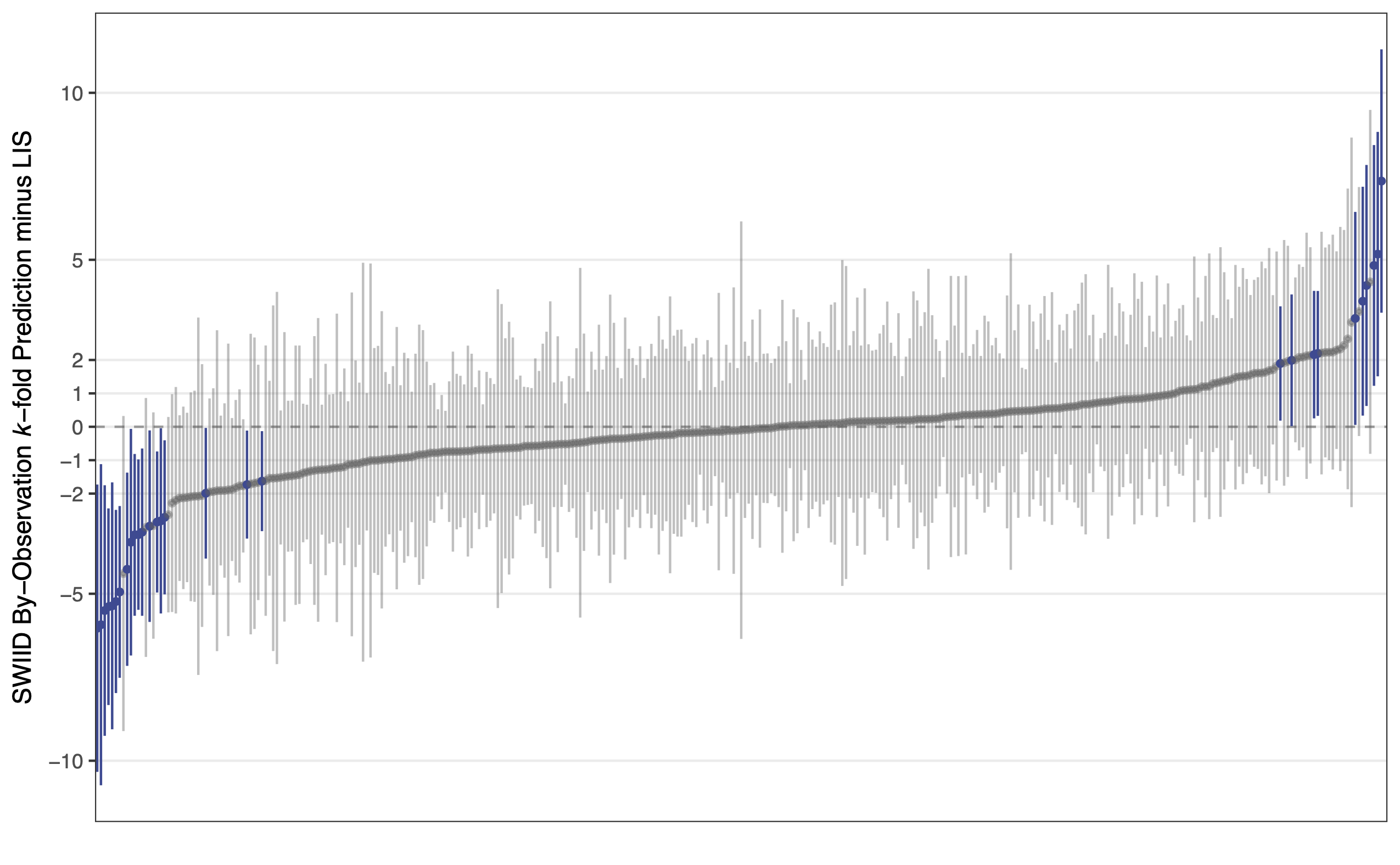Measuring Income Inequality Across Countries and Over Time: The Standardized World Income Inequality Database.
Abstract
Objective: This article documents wide-ranging revisions to the Standardized World Income Inequality Database (SWIID), which seeks to maximize the comparability of income inequality estimates for the broadest possible coverage of countries and years. Methods: Two k-fold cross-validations, by observation and by country, are used to evaluate the SWIID’s success in predicting the Luxembourg Income Study (LIS), recognized in the field as setting the standard for comparability. Results: The cross-validations indicate that the new SWIID’s estimates and their uncertainty are even more accurate than previous versions, extending its advantage in comparability over alternate income inequality datasets. Conclusion: Given its superior coverage and comparability, the SWIID remains the optimum source of data for broadly cross-national research on income inequality.
Important Figure

BibTeX Citation
@article{Solt2020,
author = {Solt, Frederick},
journal = {Social Science Quarterly},
number = {3},
pages = {1183-1199},
title = {Measuring Income Inequality Across Countries and Over Time: The Standardized World Income Inequality Database},
volume = {101},
year = {2020}}Frederick Solt. 2020. “Measuring Income Inequality Across Countries and Over Time: The Standardized World Income Inequality Database.” Social Science Quarterly 101(3):1183-1199.